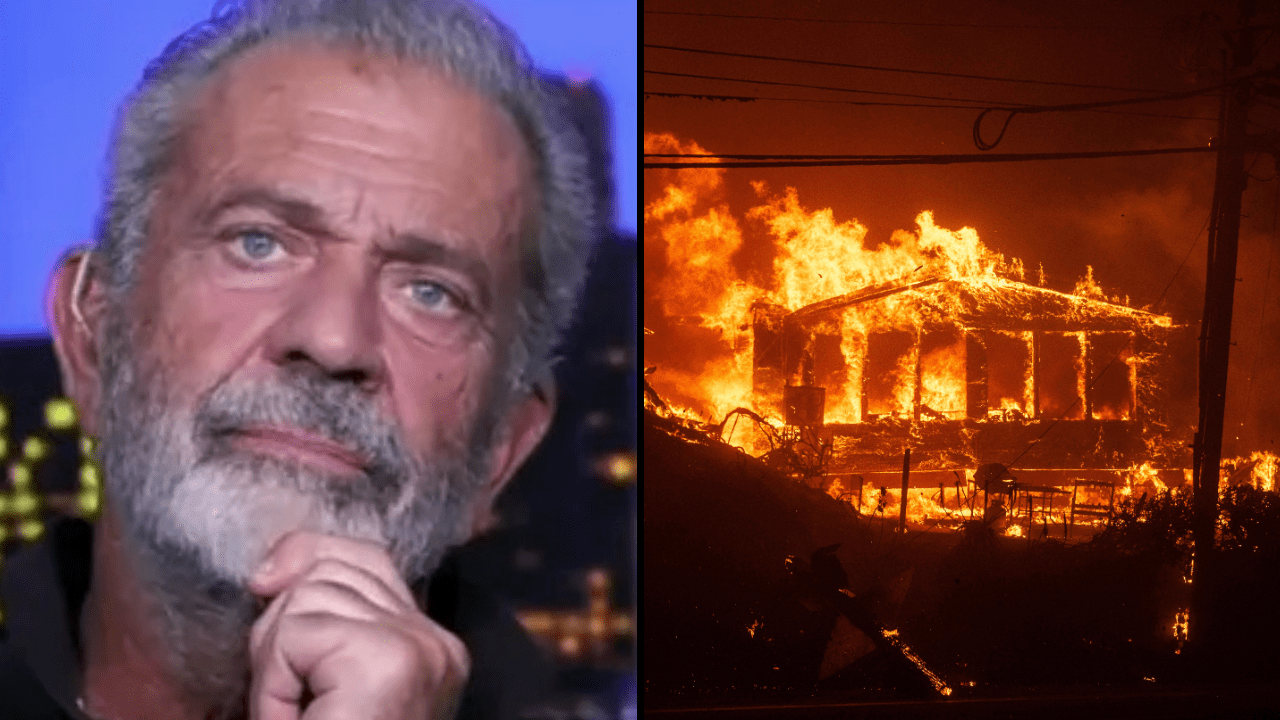Actor Mel Gibson has shared a controversial conspiracy theory regarding the catastrophic fires devastating Los Angeles.
Actor Mel Gibson has sparked heated debates online after sharing a controversial theory about the devastating wildfires sweeping through Los Angeles. His comments, made during an appearance on Fox News’ The Ingraham Angle, have left many questioning the true causes of the catastrophe.
A Crisis Unfolding in Los Angeles
The wildfires, which started in Pacific Palisades, have wreaked havoc across Los Angeles County. Over 10,000 structures have been destroyed, more than 38,000 acres have burned, and at least 11 lives have been lost. The fires have displaced over 180,000 people and left residents demanding answers about how such destruction could occur.

Containment efforts have been slow, with only eight percent of the Palisades Fire under control as of Saturday. Reports of dry fire hydrants in some of the worst-hit areas have fueled public frustration, with many pointing fingers at state and local officials for failing to prevent or mitigate the disaster.
Gibson’s Conspiracy Theory
During his interview, Gibson floated the idea that the fires might have been intentionally set to displace residents from valuable properties.
“I can make all kinds of horrible theories up in my head, conspiracy theories and everything else,” Gibson said. “But it just seemed a little convenient that there was no water.”
He also highlighted suspicious behaviors, mentioning dry conditions, strong winds, and individuals appearing prepared to start fires.
“Some of these people that they’re catching seem pretty well equipped,” he added.
Criticism of California’s Fire Management
Gibson didn’t stop at conspiracy theories. He criticized California’s handling of its water resources and accused state leaders of mismanagement.
“They’ve been doing that a while,” he remarked. “California has a lot of problems that sort of baffle the mind.”

Gibson questioned whether the fires were truly accidental.
“It’s insane to think, but one begins to ponder whether or not there is a purpose in mind. What could it be? What do they want? The state empty? I don’t know.”
Broader Housing Concerns
The conversation also touched on rebuilding strategies in California. Host Laura Ingraham noted that climate advocates are pushing for higher-density housing instead of single-family homes.
“Goodbye single-family homes. Hello high-density housing!” Ingraham said.
Gibson likened this to historical land grabs, comparing it to “old cattle barons clearing people off the land” and called it “pretty scary.”
Political and Financial Ramifications
Gibson’s remarks come amid growing criticism of California’s wildfire preparedness. Governor Gavin Newsom has been under fire for cutting $101 million from the state’s wildfire and forest resilience budget in 2024. These cuts impacted key programs for vegetation management, forest legacy projects, and home protection efforts, which critics argue could have reduced the severity of the current crisis.

President-elect Donald Trump also weighed in, criticizing Newsom on Truth Social and accusing him of failing to address water issues.
“He is to blame for this,” Trump wrote, adding that Newsom refused to approve a water restoration declaration that could have redirected excess rainwater and snowmelt to fire-stricken areas. CNN fact-checker Daniel Dale later dismissed Trump’s claims as false.
Personal Loss for Gibson
Gibson himself has been directly affected by the fires, losing his $14.5 million Malibu mansion. Recalling his return, he described finding “nothing” left of his property.
“It’s devastating. It’s emotional,” he said, sharing that he had been recording a podcast with Joe Rogan in Texas when he learned his neighborhood was ablaze.
Final Thoughts
The Los Angeles wildfires have sparked heated debates over the state’s fire management, political priorities, and even potential conspiracies. While Gibson’s theories may be controversial, they underscore the growing frustration and fear surrounding California’s wildfire crisis. As recovery efforts continue, the focus shifts to long-term solutions and accountability for preventing future disasters.

